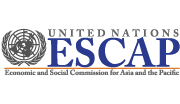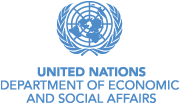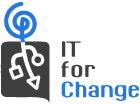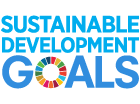Globally, 43 per cent of the world’s population has some form of regular access to the internet, leaving 4.2 billion people without connectivity and access to enjoy the same opportunities. Across Asia and the Pacific, only 36 per cent of households had a computer and 42 per cent had fixed mobile-broadband subscriptions1. Women in particular are at a disadvantage. It is estimated that women are 14 per cent less likely to own a mobile phone than men, a proportion that rises to as much as 38 per cent in South Asia2.
The 2030 Agenda for Sustainable Development adopted by UN Member States in 2015 affirms that “the spread of information and communications technology and global interconnectedness has great potential to accelerate human progress, to bridge the digital divide and to develop knowledge societies.” (paragraph 15, A/70/L.1). Further, in recognition of the potential contribution of ICTs for women’s empowerment, target 5b of the Sustainable Development Goals aims to ‘enhance the use of enabling technology, in particular information and communications technology, to promote the empowerment of women’. And Target 16.7 aims to ‘ensure responsive, inclusive, participatory and representative decision-making at all levels’.
E-government can become a strategic public policy instrument for implementing the gender and development agenda as envisioned in Agenda 2030, by promoting women’s uptake of services, participation in governance processes, and enabling the creation of inclusive data architectures that facilitate gender-responsive public decision-making. The United Nations General Assembly acknowledges the critical role of e-government for women's empowerment and gender equality. Its resolution A/RES/66/130 urges Member States “to improve and broaden women’s access to information and communications technologies, including e-government tools, in order to enable political participation and to promote engagement in broader democratic processes, while also improving the responsiveness of these technologies to women’s needs, including those of marginalized women” (A/RES/66/130, sub-paragraph 6 (h)).
Governments in Asia and the Pacific have been proactive in harnessing ICTs to enhance their governance systems and service delivery through e-government. However, there is little awareness and capacity to address the gender dimension of e-government. Only 28% of countries in Asia and 29% of countries in Oceania offered some sort of online services for women in 20143. It is vital that governments in Asia-Pacific ensure that their e-government strategies provide opportunities and equal benefits to women through gender-sensitive public service delivery and inclusive decision-making processes.
The 2014 United Nations E-Government Survey highlighted the potential of e-government to facilitate participatory decision-making and inclusive service delivery for vulnerable groups, including women, through e-participation and a multi-channel approach. E-government can advance the rights of women through better institutional coordination and gender mainstreaming across line ministries; more gender-responsive service delivery; planning and monitoring mechanisms that help respond to women’s needs, as well as online channels to engage women in co-creating or co-producing services that better serve their own needs.
In light of the above, the Economic and Social Commission for Asia and the Pacific (ESCAP), in partnership with the United Nations Project Office on Governance (UNPOG) of the Division for Public Administration and Development Management, United Nations Department of Economic and Social Affairs, initiated the project on “e-Government for Women’s Empowerment” in 2014, to enhance a) knowledge sharing and raise awareness of good practices and b) skills and understanding of strategies and actions required to promote e-government for women’s empowerment.
To this end, the project has developed the following research and institutional capacity-building resources:
- Asia-Pacific Regional Report on E-Government for Women’s Empowerment (2016)4
This research report builds on 12 good practices identified in five countries (Australia, Fiji, India, the Philippines, Republic of Korea) to review three dimensions of the e-government ecosystem (online service delivery, citizen uptake, participation and connectivity) and examines how the potential of e-government is being used to address the needs of women. - Country overviews of the gender dimension of e-government institutional ecosystem in Malaysia, Sri Lanka and Bangladesh (2016-17)
- Country overviews of the gender dimension of e-government institutional ecosystems in Australia, Fiji, India, the Philippines, Republic of Korea (2014-15)
- EGOV4WOMEN Online Toolkit – an online public resource on the design and implementation of gender-responsive e-government institutional ecosystems, targeted at policymakers in the Asia-Pacific. This Toolkit is intended to serve as a handbook that can be customised for regional and national level training courses/capacity-building programmes on e-government for women’s empowerment – and it succinctly brings together key insights from the regional research report and country overviews.
In the implementation of this project, ESCAP has partnered with IT for Change, India (www.ITforChange.net). IT for Change is a not-for-profit organisation that seeks to build a socially just and gender-equitable information society for the global South. Towards this, it is engaged in policy research, advocacy and field practice in the domains of gender, digital technologies and development; ICTs in education; e-government; Internet governance, digital rights; and data for development. At IT for Change, this project was led by Anita Gurumurthy, Executive Director with support from Nandini Chami, Senior Research Associate.
This project has been made possible with the generous funding from the Government of the Republic of Korea, through the Korea-ESCAP Cooperation Fund (KECF).
About us
The Economic and Social Commission for Asia and the Pacific (ESCAP) serves as the United Nations’ regional hub promoting cooperation among countries to achieve inclusive and sustainable development. The largest regional intergovernmental platform with 53 member States and 9 associate members, ESCAP has emerged as a strong regional think-tank offering countries sound analytical products that shed insight into the evolving economic, social and environmental dynamics of the region. The Commission’s strategic focus is to deliver on the 2030 Agenda for Sustainable Development, which it does by reinforcing and deepening regional cooperation and integration to advance connectivity, financial cooperation and market integration. ESCAP’s research and analysis coupled with its policy advisory services, capacity building and technical assistance to governments aims to support countries’ sustainable and inclusive development ambitions.
The United Nations Department of Economic and Social Affairs (UN DESA) promotes and supports international cooperation in the pursuit of sustainable development for all. It addresses a range of cross-cutting issues that affect peoples’ lives and livelihoods, especially the most vulnerable. In providing a broad range of analytical products, policy advice and technical assistance, UN DESA effectively translates global commitments in the economic, social and environmental spheres into national policies and actions and plays a key role in monitoring progress towards the 17 Sustainable Development Goals.




- Key 2005-2015 ICT data for the world, ITU http://www.itu.int/en/ITU-D/Statistics/Pages/stat/default.aspx ; The State of the Broadband 2015, The Broadband Commission for Digital Development, ITU and UNESCO, 2015
- Bridging the gender gap: Mobile access and usage in low and middle-income countries, The GSMA Connected Women Global Development Alliance, 2015
- United Nations E-Government Survey ‘e-Government for the Future We Want’, 2014, UN DESA, figure 6.13, Page 138
- http://www.unescap.org/sites/default/files/E-Government-for-Women-in-Asia-Pacific.pdf
